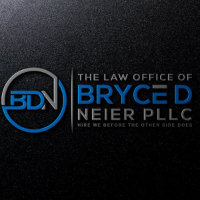Fayetteville Juvenile Law Lawyer, North Carolina
Not enough matches for Fayetteville Juvenile Law lawyer.
Below are all Fayetteville Criminal lawyers.
Bryce D. Neier
✓ VERIFIEDThe Law Office of Bryce D. Neier is based in Fayetteville, North Carolina and I handle a wide range of civil matters. However, the focus of my practic... (more)
Andrew R. Dempster
✓ VERIFIEDAndrew R. Dempster Jr. "Drew" is a second generation attorney. Drew grew up in Fayetteville, North Carolina where he graduated from Pine Forest High S... (more)
Jonathan D. Breeden
✓ VERIFIEDJonathan Breeden is a successful family law lawyer in Garner, North Carolina. He graduated from NC State with a political science degree in just three... (more)
April Howard Phillips
FREE CONSULTATION
CONTACTL. Stacy Weaver
FREE CONSULTATION
CONTACTFREE CONSULTATION
CONTACTFREE CONSULTATION
CONTACTFREE CONSULTATION
CONTACT





